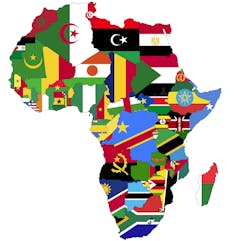CC™ ViewPoint
Apple co-founder and CEO Steve Jobs died over a decade ago. With over 10 years of hindsight, we have an even greater sense of how deeply he impacted the tech industry—but also how the tech industry is beginning to move beyond some of the paradigms he established and the battles he fought.
Unlike many other tech CEOs who rose to prominence in the early part of the 21st century and subsequently faded away, Jobs continues to hold the public’s attention. He’s elevated as an icon of creativity, the rare executive who could not only run a business, but also predict what consumers really wanted. Apple’s track record during his tenure—from the iMac to the iPod and the iPhone—certainly bears this out.
“As thoughts grew into ideas, however tentative, however fragile, he recognized that this was hallowed ground. He had such a deep understanding and reverence for the creative process,” Jony Ive, the former head of Apple’s design and a close friend of Jobs, wrote in a new piece in The Wall Street Journal. “He understood creating should be afforded rare respect—not only when the ideas were good or the circumstances convenient.”
Ive added: “Ideas are fragile. If they were resolved, they would not be ideas, they would be products. It takes determined effort not to be consumed by the problems of a new idea. Problems are easy to articulate and understand, and they take the oxygen. Steve focused on the actual ideas, however partial and unlikely.”
Jobs’s focus on high quality and aesthetics helped transform Apple into a multi-trillion-dollar company. Whether Apple continues its stratospheric growth for yet another decade may hinge on whether it can successfully evolve into a provider of cloud services in addition to hardware—a shift that Jobs dimly saw before his death. In an October 2010 email, he suggested that the tech industry was on the verge of a “post-PC era,” and that 2011 would not only be “Year of the Cloud” but also see the continuation of Apple’s “Holy War with Google.” Unless Apple moved beyond an “old paradigm,” it would eventually fall behind its rivals.
While Apple’s iOS and Google’s Android still compete for their respective slices of the mobile OS market, Apple’s opponents have multiplied over the past decade. For example, Apple’s dedication to user data privacy under current CEO Tim Cook has put it in direct conflict with Facebook, whose business model hinges on vacuuming up as much data as possible from users. Apple has also been locked in a fierce legal battle with Epic Games, creator of the ultra-popular “Fortnite” game, over the size of Apple’s App Store commission.
In addition, Apple must ensure that it can continue to compete with its rivals in cutting-edge technologies including (but certainly not limited to) artificial intelligence (A.I.), machine learning, and the cloud. Although Apple was one of the first companies into the digital-assistant game when it rolled out Siri in October 2011, it has since lost ground to Amazon’s ultra-popular Alexa and Google’s voice-activated assistant. While most of the company’s hardware devices remain society-redefining hits, if there’s one thing that Jobs understood, it’s that the tech industry can shift very quickly under your feet.
DICE










